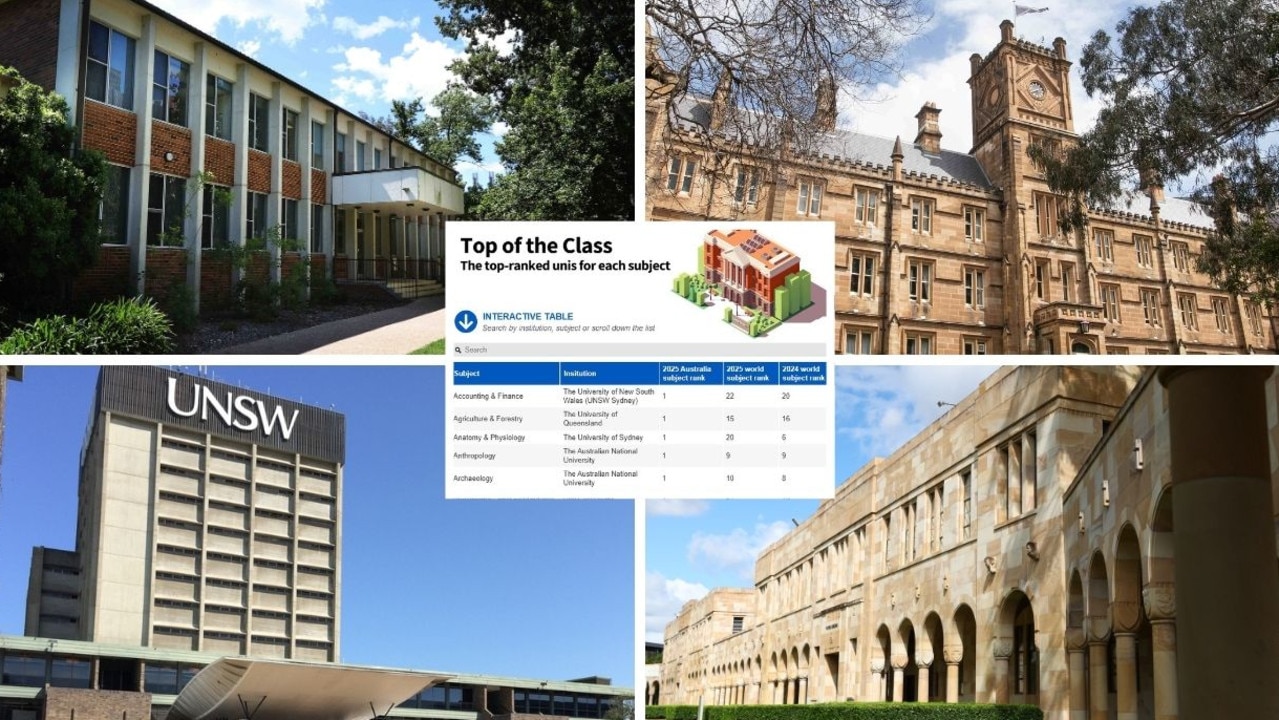Flinders University unveils Tesla Cybertruck inspired World Solar Challenge car
One of the hottest cars on Earth has given Flinders the inspiration behind its newly unveiled entry for a race to Darwin. See the pictures
Tertiary
Don't miss out on the headlines from Tertiary. Followed categories will be added to My News.
Flinders University’s new solar car has been likened to Elon Musk’s cybertruck, while the growing fleet of electric vehicles will function as another battery.
The FAST (Flinders Automotive Solar Team) car “Investigator IV” will compete in the 2023 Bridgestone World Solar Challenge from Darwin to Adelaide.
Lonsdale based manufacturer REDARC Electronics is an industry partner, collaborating on both the car and an educational solar model kit for SA schools.
FAST project manager and digital technologies senior lecturer Andrew Marshall said a clip from Elon Musk became the catalyst for the new vehicle, “both as the starting point and ongoing inspiration for Investigator IV’s design direction”.
“From the short overhang and futuristic front end, to the distinctive, extended flat rear tail section and with the centrally positioned oversized touch screen inside the cabin, the Musk influence was clear to see within all aspects of the vehicle design,” he said.
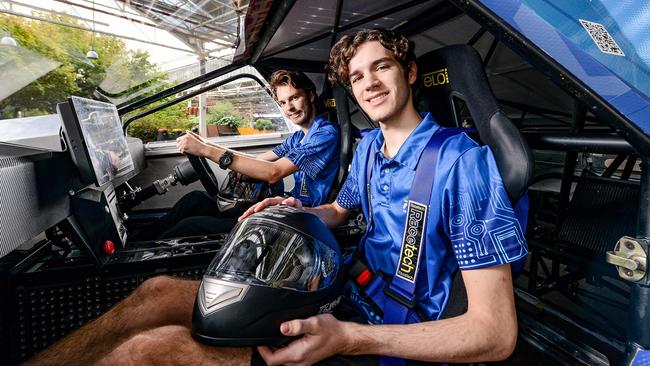
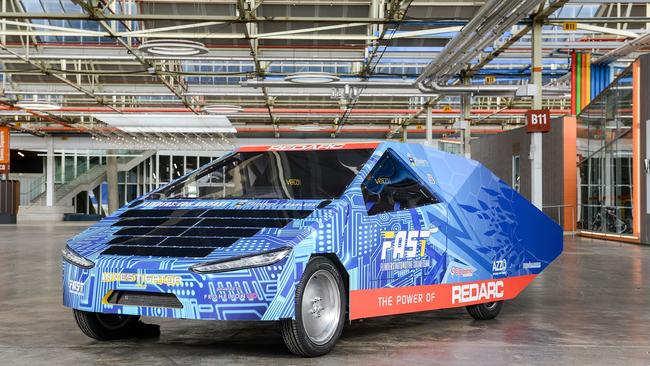
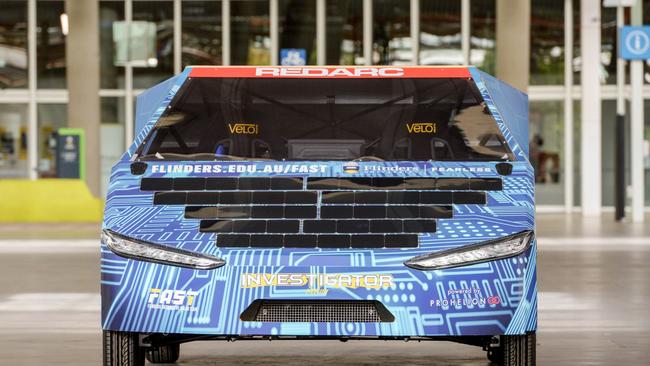
“This design influence has become reality.’
He said the student-led engineering team was improving on the previous design, Investigator Mark III, increasing the battery capacity by almost double and solar efficiency by 30 per cent.
“(They’re also) making the car lighter and improving driving performance by decreasing rolling resistance, increasing aerodynamics and range, while improving handling, which together will produce a significant increase in the performance of the car,” he said.
Flinders University engineering student Nishant Bazzad said the solar car program gave him the opportunity to learn about the industry-standard software used in engineering such as modelling and 3D simulations.
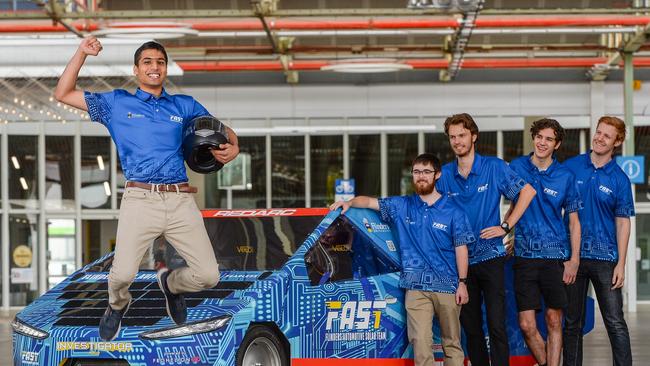
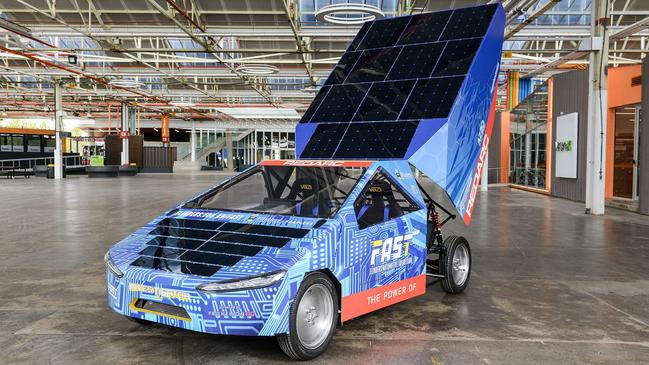
“I have been able to apply my engineering skills to real world problems whilst also maintaining proper engineering documentation, which are highly sought-after skills in industry,” he said.
The university’s fleet cars at Bedford Park will soon feed renewable energy they have stored into the state’s electricity grid during the early evening, as part of an industry collaboration with ENGIE Australia and New Zealand.
The 20 two-way V2G electric chargers at the Bedford Park campus will be expected to discharge about 100kw into the grid over four to five hours after 5pm, releasing solar power stored during the day, before filling up on wind power overnight.




